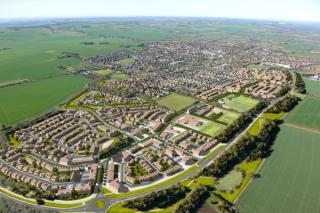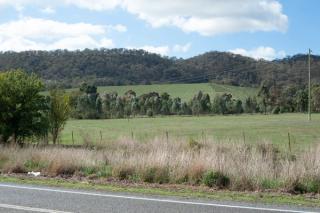
Bellettes Landscape and Visual Impact Assessment
- Client Name
- Allspec and Associates
- Location
- Tumut, New South Wales, Australia

Challenge
The Bellettes Landfill Extension Project is focused on increasing the capacity of an existing landfill site approximately 8km west of Tumut NSW. SLR was commissioned to undertake a number of technical studies including the Landscape and Visual Impact Assessment as part of a broader Environmental Impact Statement to meet the requirements of the NSW Environmental Planning and Approvals Regulations 2000.
The existing site, which is nestled between the vegetated hills of the Wereboldera State Conservation Area, the Tumut State Forest and surrounding picturesque rural landscapes has an existing landfill which is elevated above the Snowy Mountains Highway and already quite visible.
Solution
The proposed extension will endeavour to rehabilitate the existing landfill and prolong the landfill’s life by 12 years with an extension of approximately 500,000m3 of fill volume. In the first instance visual baseline conditions were identified to capture the topography, vegetation, roads, structures and water bodies. This set the framework for the identification of the Baseline Visual Character and the Landscape Character Assessment which was in line with the identified Landscapes of the region.
The body of the Visual Impact Assessment initially drew on GIS information to digitally map the Zone of Theoretical Visibility. This helped to identify area where the proposed development could potentially be seen from areas adjoining the site.
The Assessment of Visual Impacts was undertaken rating elements such as Receptor Sensitivity, Magnitude of Landscape Change and the Effect Significance. Due to the presence of existing vegetation near the impacts from key public receptors such as roads and access ways, this was considered to be generally low. The pre-existing landfill, although a scar on the landscape, set up reasonable expectations from the public that any additional ground disturbance would create minimal change and impacts.
Impact
The final rehabilitation of the site will assist in transitioning the site from landfill to part of the pastoral landscapes.

